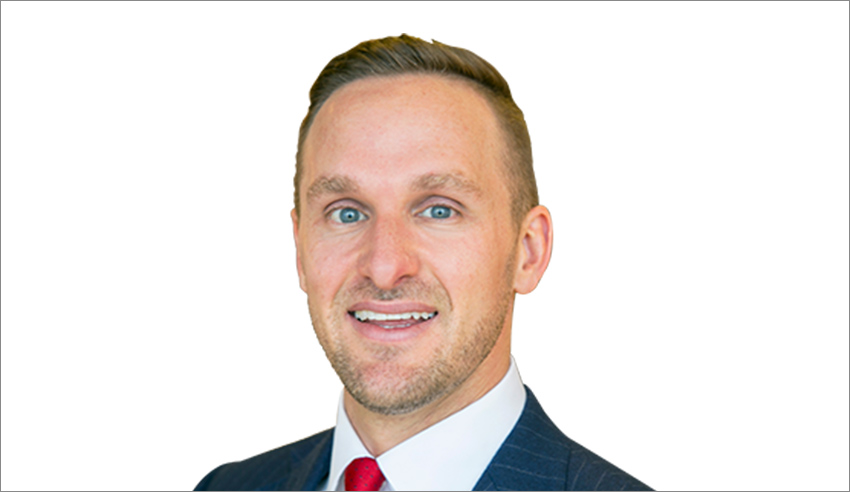As it launches its new Reconciliation Action Plan (RAP), King & Wood Mallesons is optimistic about the capacity of not only its lawyers but all those at the big end of town to better serve the communities around them.

Lawyers at the big end of town have been forced, in 2020, to think more deeply about global issues and structural inequality – a trend that should continue post-pandemic, says the global law firm.
However, at least at KWM, this has not been the case.
In conversation with Lawyers Weekly, KWM head of pro bono and community impact Dan Creasey outlined that, in the financial year just gone, the global firm recorded its “highest ever output and participation rate” for its pro bono practice, with over 90 per cent of the firm’s legal professionals completing 51,292 hours of work.
“These figures are, in part, a reflection of our lawyers wanting to do whatever they can to support the community through what has been one of the most challenging years in living memory, from the bushfires to the global pandemic,” he espoused.
Another reason for such a significant output, Mr Creasey hypothesised, is the firm’s new social impact strategy, which he said purports to “reduce inequality and poverty for children and young people, which provides a much sharper focus on what we’re trying to do, why and for whom.”
“A clear strategy empowers our people to think about solving the structural issues which cause inequality and poverty, which have unfortunately been so amplified by COVID-19. This has led our people to thinking even more deeply about the challenges the globe faces right now,” he argued.
BigLaw firms and pro bono hours post-pandemic
When asked if he thinks the firm’s trend towards more pro bono undertakings will continue post-pandemic, and if other firms at the big end of town will be replicating such a trend, Mr Creasey said that, in the current landscape, the Australian community “recognises the need for companies to respond to urgent pressures, but it also expects those companies to maintain a focus on social concerns”.
“The world which emerges from the global pandemic will most assuredly look quite different. Inequality and poverty will inevitably increase across all communities, and so too will the need for access to legal advice and the need for law firms to fill this gap,” he submitted.
“Against that backdrop, there are multiple reasons why forward-thinking law firms should, in challenging times like these and beyond, show leadership in this space, not least is that supporting and nurturing employees in areas that interest them and give them purpose creates a more loyal and engaged workforce.
“Access to justice for all is one of the key tenets of the rule of law and evidence of a proper functioning legal system. Large law firms benefit from working in jurisdictions with a strong rule of law and in my view, need to fight to protect it and ensure it is accessible to all.”
The age of coronavirus – as well as the bushfire crisis earlier this year – has “enhanced people’s awareness of the need to work together”, he surmised, and has also prompted people to look out for others and to increase civic contributions.
“By way of example, we recently completed the first wave of our program’s evaluation. Responses to one of the questions asked found that 95 per cent of respondents gave a rating of 4 (agree) or 5 (strongly agree) to the question, ‘By participating in our pro bono practice, I feel a sense of satisfaction in being able to support the community via KWM,’” he said.
KWM’s new RAP
Mr Creasey’s comments come as the firm has, as of Tuesday, launched its new Reconciliation Action Plan (RAP), which runs for the next three years and came together with the assistance of Professor Megan Davis and Dean Parkin as external experts.
The priority for this RAP, Mr Creasey said, will be young First Nations persons.
“Rather than our Stretch RAP being a separate program and siloed, it is woven through our broader community impact program for maximum impact. Our Stretch RAP is all about us expanding our sphere of influence, embedding our reconciliation activities more deeply and significantly building on the commitment that we first made in 2016 when we launched our first RAP,” he explained.
The firm will be focused on four key areas: “supporting economic development by helping new Indigenous enterprises, increasing First Nations representation in the legal profession, leading systemic reform and advocacy to change laws which disproportionately impact on our First Peoples, and bolstering support for programs which are led by First Nations experts and organisations”.
Voting is now open for The Lawyers Weekly Award, to be presented to one individual for making substantial, consequential achievements in advancing the Australian legal profession since 2000. Finalists for this prestigious award have been confirmed as those listed below. To vote for your preferred winner, click here. https://www.lawyersweekly.com.au/biglaw/28834-vote-now-for-the-foremost-lawyer-of-the-21st-century
Julian Burnside AO QC (barrister)
Bernard Collaery (barrister, former Attorney-General of the ACT)
Kate Eastman SC (barrister and co-founder, Australian Lawyers for Human Rights)
The Honourable Robert French AC (former chief justice, High Court of Australia)
Sue Kench (global chief executive, King & Wood Mallesons)
The Honourable Chief Justice Susan Kiefel AC (chief justice, High Court of Australia)
The Honourable Michael Kirby AC CMG (former justice, High Court of Australia)
Jane Needham SC (barrister and former president, NSW Bar Association)
Geoffrey Robertson AO QC (barrister)
Professor Gillian Triggs (assistant secretary-general, United Nations and former president, Australian Human Rights Commission)

Jerome Doraisamy is the managing editor of professional services (including Lawyers Weekly, HR Leader, Accountants Daily, and Accounting Times). He is also the author of The Wellness Doctrines book series, an admitted solicitor in New South Wales, and a board director of the Minds Count Foundation.
You can email Jerome at: